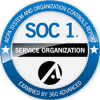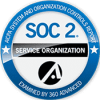Safeguarding sensitive personal health information (PHI) to protect patient privacy is of critical importance, with severe financial penalties for those who fail to comply with regulations. The rising peril of cyber-attacks and data breaches—with new threats and cybercriminals materializing daily—make it even more critical for healthcare organizations to stay ahead of potential risks.
To protect data and avoid disruptions for critical healthcare operations, organizations need to continually evolve their security. But to some, the alphabet soup of regulations and certifications can be difficult to navigate. This blog cuts through the noise to discuss the top three security features you should look for in your healthcare technology.
Page Content
1. Look for a solution that is built on a flexible and secure foundation.
A care management platform that is built on a cloud-based computing service like Microsoft Azure or Amazon Web Services (AWS) offers huge advantages when it comes to scalability, flexibility, integrations, and other services. A scalable architecture enables organizations to easily adapt to the changing healthcare landscape, handling increased data loads, users, and more without compromising performance. Advanced analytics and machine learning tools available through these cloud services can also provide additional capabilities, such as valuable insights to improve decision-making and resource allocation and to personalize patient care. Perhaps most important, cloud services are at the forefront of security standards and continue to devote considerable resources to all aspects of security, including identity management, encryption, and threat detection.
2. Look for a solution that offers a seamless and secure approach to integrations.
Effective whole-person care requires interdisciplinary teams comprising plans, providers, and community services to share information and collaborate on behalf of patient health. This means securely integrating with key systems such as electronic health records (EHRs), health information exchanges (HIEs), data warehouses, claims systems, and more to provide interdisciplinary teams access to comprehensive and real-time patient information. Make sure the solution supports HL7, X12, and FHIR interface standards to keep your data safe and secure while in transit and at rest and that their integration infrastructure is robust enough to make integrating with other systems efficient and worry-free. Look for a technology with a standard API layer so you can seamlessly integrate with other applications and tools to improve workflows and information sharing.
3. Make sure your solution has the right certifications and compliance practices.
Look beyond the confidentiality and data security requirements of Health Insurance Portability Act (HIPPA) and Affordable Care Act (ACA) requirements to organizations who have achieved key certifications and compliance, including:
- MARS-E (Minimum Acceptable Risk Standards for Exchanges)
- HITRUST CSF (Health Information Trust Alliance Common Security Framework)
- SOC (Service Organization Control) 1 Type 2 and SOC 2 Type 2
- NIST (National Institute of Standards and Technology)
Make sure your technology partner conducts regular security assessments, vulnerability scans, and penetration testing to identify and address potential infrastructure weaknesses, and that they are proactive in mitigating evolving cybersecurity threats.
Incedo technology delivers seamless integrations and elevated privacy and security compliance
InfoMC is deeply committed to safeguarding protected health information (PHI) and to the highest standards of privacy, security, and risk management, and maintains this commitment as a critical focus on our technology roadmap. The technology infrastructure for our enterprise care management solution, called Incedo, is migrating to a cloud-first hybrid architecture that leverages the application services of Microsoft’s Azure Cloud, the most highly flexible and secure cloud solution available.
Our Incedo Enterprise Care Management platform meets the confidentiality and data security requirements of the Affordable Care Act and HIPAA. We have achieved MARS-E (Minimum Acceptable Risk Standards for Exchanges), HITRUST CSF, and SOC (Service Organization Control) 1 Type 2 and SOC 2 Type 2 certifications—all three certifications are audited annually—and are compliant with NIST (National Institute of Standards and Technology).
Incedo provides strong interoperability via a technology framework that securely interfaces with critical systems such as EHRs, HIEs, data warehouses, external analytics, business intelligence tools, medical necessity and clinical decision support, third-party tools, portals and more. We support the highest standards and formats for secure data exchange and offer multiple APIs and a framework enabling efficient integration.
InfoMC Security Qualifications
Certifications
- MARS-E
- HITRUST CSF
- SOC 1 Type 2 and SOC 2 Type 2
Compliance
- HIPAA
- Affordable Care Act
- NIST
Cloud Framework
- Microsoft Azure Cloud
- Amazon Web Services (AWS)
- Google Cloud Platform (GCP)
Technology Stack
- Net
- Angular
- SQL Server
- Power BI
Interface Standards
- REST APIs
- HL7
- X12
- FHIR








